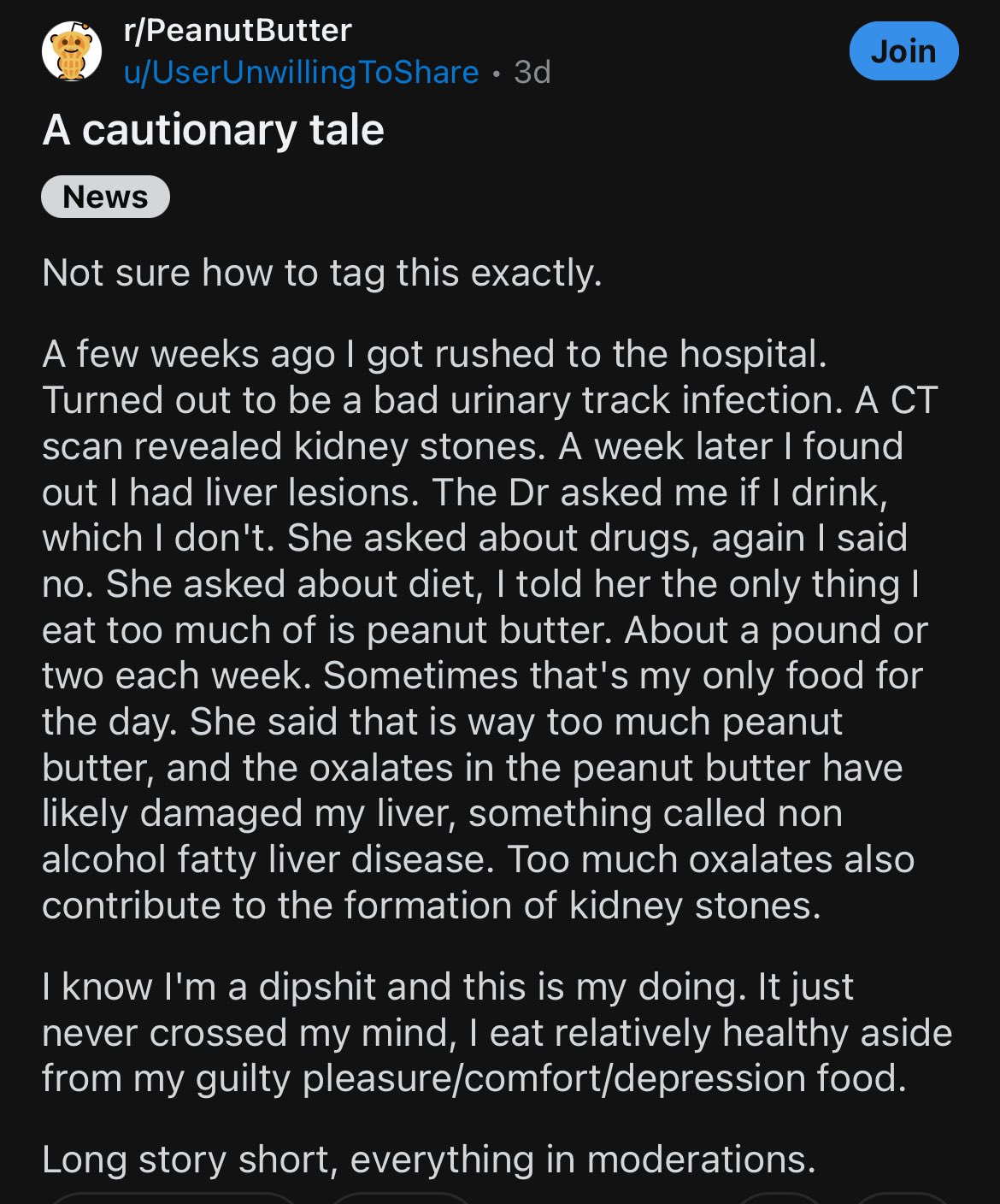this post was submitted on 23 Sep 2024
721 points (97.9% liked)
Facepalm
3332 readers
169 users here now
founded 2 years ago
MODERATORS
you are viewing a single comment's thread
view the rest of the comments
view the rest of the comments

The word "liver" doesn't appear in the Wikipedia article.
wp:Peanut
As for oxalates:
wp:Oxalate:
but no mention of peanuts in the main or talk page.
The doctor might be wrong.
The poster might be lying too.
The poster might both be their own doctor and lying.
I suspect peanut falls under the "most nuts" part, right after cocoa and chocolate
Peanuts aren't nuts...
That's truuuuuuuuuuuuue.
yep.